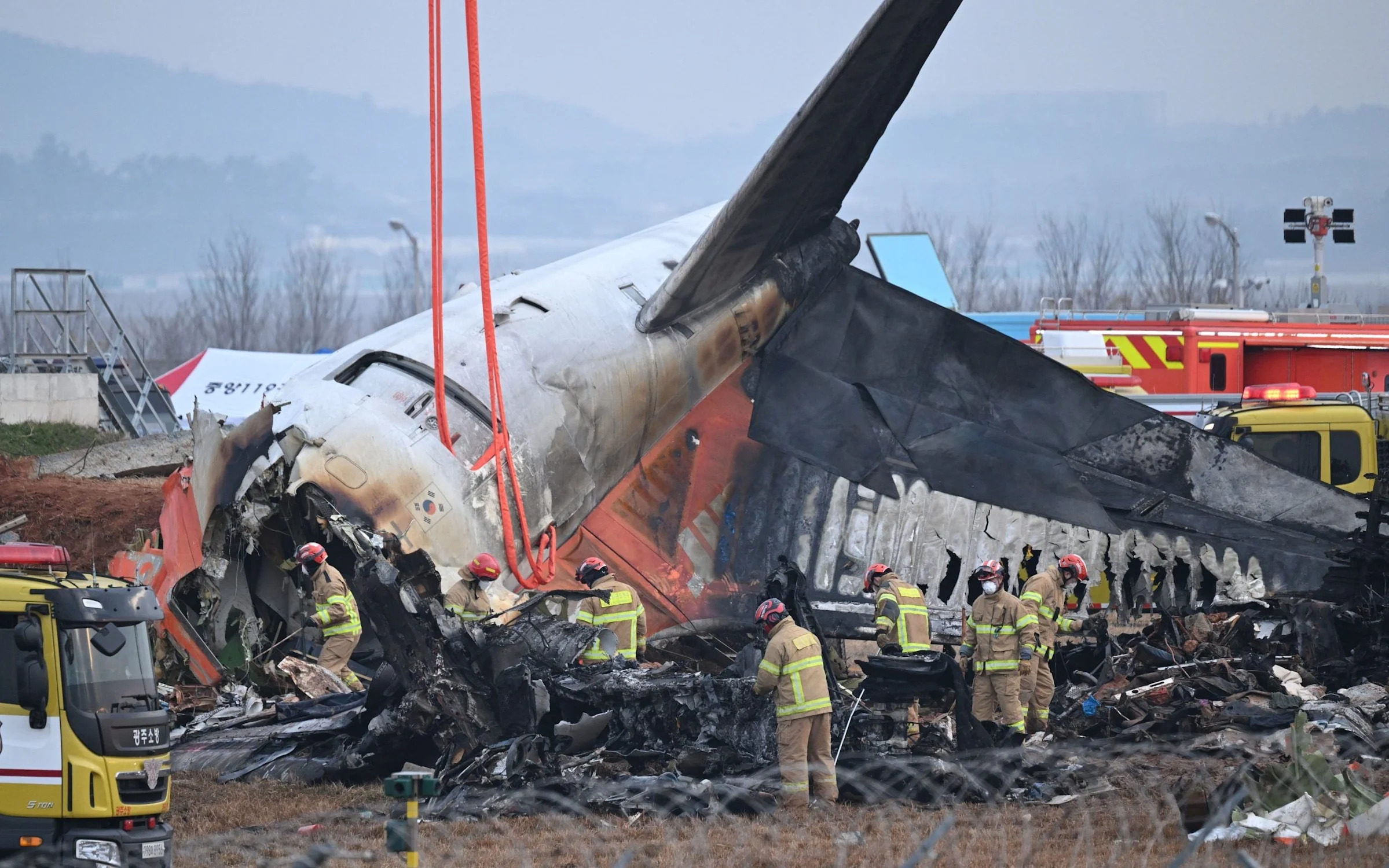The pilots of the South Korean airliner that crashed and killed 179 people switched off the wrong engine, a report has revealed.
The Aviation and Railway Accident Investigation Board (ARAIB) found the right engine of the Jeju Air Boeing 737 stopped working after the plane collided with a flock of ducks, but that the left engine continued to produce power.
However, instead of turning off the damaged engine, the pilots cut power to the side that was still operational, leaving the plane without any working engines.
The investigators said: “A pilot may have mistakenly turned off the engine.”
The cockpit voice recorder captured the pilot saying “shut down engine number two”, but the flight data shows that the pilots instead switched off engine number one, likely in error because of the pressure of the situation.
An official told South Korea’s MBN television news: “The pilot should have turned off the right engine, which was severely damaged by the bird strike, but he turned off the left engine, which was spinning, and the black box and power went out.”

The pilots on the Jeju Air flight had also activated the left engine’s fire extinguisher, which makes it impossible for the engine to be restarted while the aircraft is in flight, the report said.
News of the pilots’ role in the Jeju Air crash comes less than a week after it was revealed that a pilot cut off the fuel supply in the fatal Air India crash in June, which killed all but one of the 242 passengers on board.
The South Korean plane, which crashed on Dec 29 2024, hit the ground at a dangerously high speed without its landing gear lowered and exploded after colliding with an embankment at the end of the runway.
Credit: Lee Geun-young
All 175 passengers and four of the six crew members were killed in South Korea’s worst aviation disaster in decades.
The pilots of Flight 2216 had also ignored the correct procedure for how to land after a bird strike by climbing the aircraft back up and then turning it to make a rushed landing in the opposite direction on the same runway.
The collision with the birds had occurred as the aircraft was preparing for its descent into Muan International airport, located in the southern part of the country.
The airport’s air traffic control issued a warning at 8:57am that there was bird activity detected in the area, and a minute later the pilot reported a bird strike and issued a mayday call.

Video footage later showed that the right engine had erupted in flames and the investigation found feathers and duck blood in both engines.
ARAIB presented its findings on Saturday, but the families of the victims accused officials of unfairly blaming the pilots at the press conference.
The investigators had to quickly retrieve copies of the report, claiming that it had not yet been formally issued.
Investigators maintain that there were no engine defects or mechanical failures, although power to the aircraft’s flight recorders was shut off for the last four minutes of the flight, so there could be key information that remains unknown.
Kim Yu-jin, the head of the relatives’ group, said: “When investigators take a position, it should be accompanied by documents that support their position and convince the bereaved family that their conclusions are inevitable. We were only given their conclusions.
“We have repeatedly asked them to be careful about these disclosures because the way that the results of the investigation are communicated can have an impact on the compensation that families receive.’’
Yahoo News – Latest News & Headlines
Read the full article .


